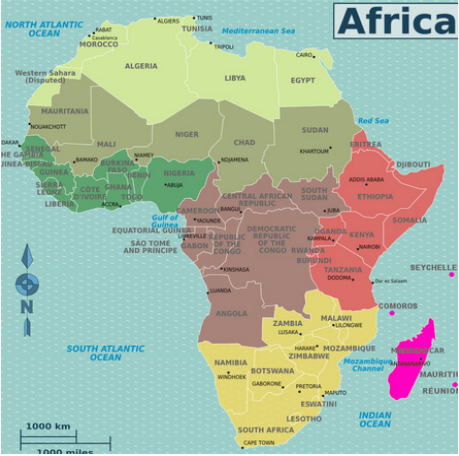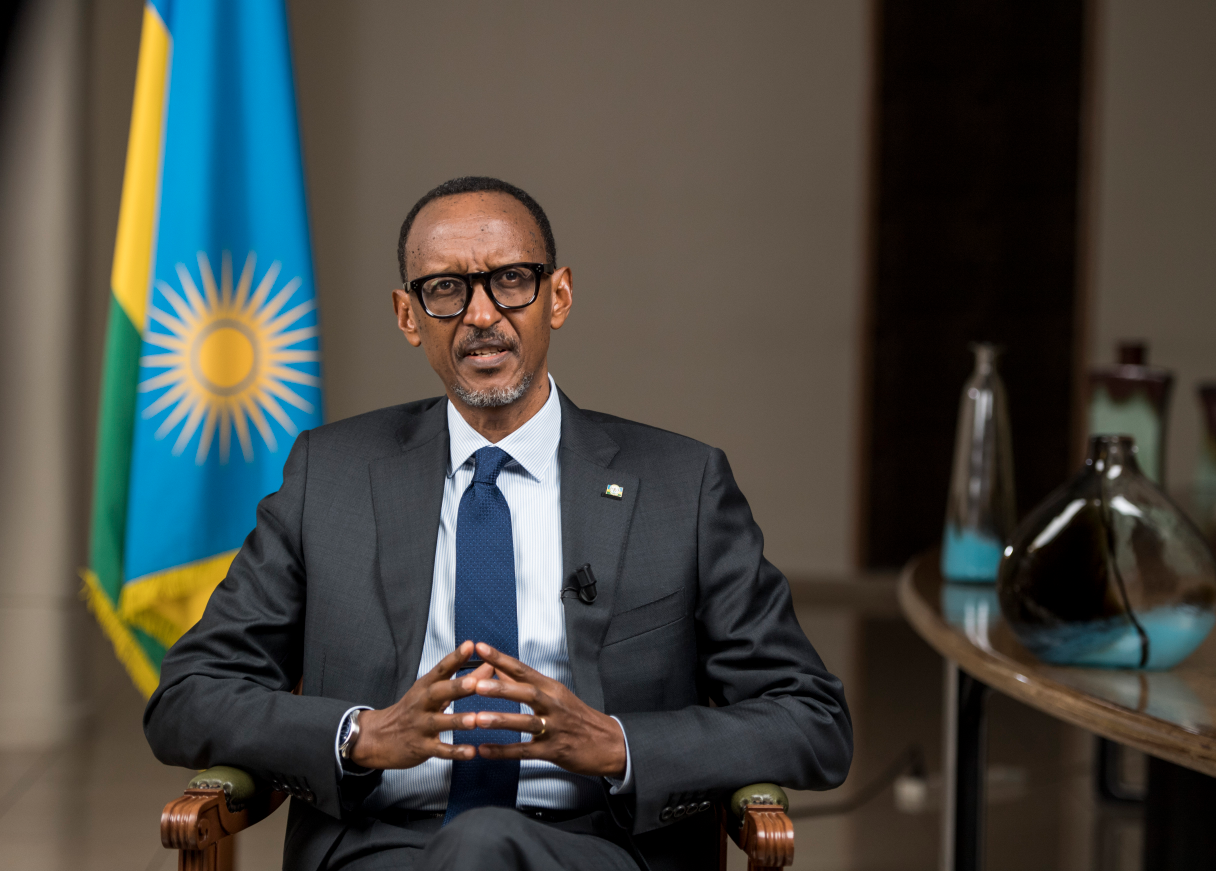News
A Message To Those Who Seek To Keep Africa Poor: We Won’t Be Fooled

I debated long and hard whether to do this publicly, but I think a message needs to be sent to a group of external interests working in tandem with the internal interests described in the quoted tweet to counteract the interests of half a billion West Africans. A message that at whatever level we exist, we take our destiny seriously and we are not to be trifled with.
Last week, I received an N800,000 offer from an international NGO called Dialogue Earth (formerly known as China Dialogue Trust) to write an article essentially saying that Dangote Refinery is terrible for the environment because something something “Environmental Concerns,” something something “Climate Change,” something something “Energy Transition Policy,” something something “COP 28.”
The (unstated but clearly implied) thrust of the brief was for a prominent local voice to put their name on an article that is an argument or a premise for the the Nigerian government to kill the refinery based on its “energy transition commitments” and “environmental policy.” This conclusion wasn’t immediately apparent when they reached out to me, but I suspected where it was heading, and I quickly accepted the offer so that I could see the brief and obtain hard evidence. I’ve attached screenshots from the brief below.
Basically, this London-based NGO is headed by Sam Geall, an Oxford professor and is funded by several American intelligence fronts such as Ford Foundation and ClimateWorks (which is blacklisted in India for funding organisations working against India’s national interest). For whatever reason, it is now quietly mobilising a resistance campaign against what it describes as “Nigeria’s first refinery.” Apparently, the status quo of Africa’s largest oil producer having no functioning oil refinery to beneficiate its own oil was not a problem for Dialogue Earth and the American CIA fronts who fund it.
The human poverty caused by exporting this raw material and importing refined fuel was not bad for the environment. Also, the fact of European refiners regularly blending West African fuel cargoes with toxic waste and sulphur content 200 times the European legal limit (leading to asthma, bronchitis and eye infections in West Africa) was also not bad for the environment. But Nigeria having a refinery that will wean West Africa off import dependency on those European refiners (and allow West Africa control the sulphur content of its own fuels) is where Dialogue Earth and its funders draw the line. That one is bad for the environment, and David Hundeyin should write an article calling for the refinery to be shut down or limited.
I’m putting this out there publicly so that nobody will henceforth use the term “conspiracy theory” when it is pointed out for the umpteenth time, that there are American and European state and private interests that are heavily invested in keeping Africa exactly as poor as it is, and that they regularly push levers most of us do not even know exist, to make sure that this status quo is protected. These people believe that Africans should not exist or have nice things in this world. Apparently, the sole purpose of our existence is to enhance their experience of the planet and all that it has to offer.
It is because of them that I have to make a public spectacle out of this, even though I know that doing this is probably going to cost someone their job. The message needs to be passed that as poor as we are, you cannot convince us to campaign for the elongation of our own poverty by commissioning $500 hack jobs in the hope that we will be greedy enough to only see the money and ignore the bigger picture of what we can clearly see you trying to do.
I will reiterate something I have said multiple times – I am not a believer in the religious faith called Climate Change/ Saving The Environment. I care exactly as much about the environment as do the rich white men who destroyed it to begin with. I firmly believe that if what it takes for Africa to industrialise is for it to burn so much fossil fuel that snow stops falling in Wisconsin and it starts raining concentrated sulphuric acid in Doncaster, it is not too big a price for Europe and North America to pay – it is certainly not bigger than the price Africa had to pay for Europe and North America to develop.
It is and will continue to be 100% OUR prerogative to determine what to do with our hydrocarbons. It is not the rich white men hiding behind these “Climate Advocacy NGOs” who will tell us what to do with our energy reserves, and by what means we are allowed to escape the poverty that they engineered for us.
I might not be a fan of Aliko Dangote or his monopolistic business practices – as is well known – but I’m also smart enough to know when rich white men in DC, Houston, Rotterdam and London and trying to use me as a marionette in their 400 year-old coloniser games. If you are reading this and you are one of the rich white men whose economic interests are threatened by Nigeria refining its own oil, you should come out and fight Aliko Dangote by yourself.
Or at least go find a much stupider African to do your dirty job – there’s plenty of those. It will never be me
News
Court, Congress Pile Pressure on DHS Over Minnesota Operations

Court, Congress Pile Pressure on DHS Over Minnesota Operations
US House Democrats have threatened to begin impeachment proceedings against Homeland Security Secretary Kristi Noem over her handling of the immigration crackdown in Minnesota, unless President Donald Trump removes her from office.
House Minority Leader Hakeem Jeffries warned that Democrats could proceed “the easy way or the hard way,” describing the actions of Noem’s department as “disgusting.”
The crisis follows the fatal shooting of US citizen Alex Pretti by a federal agent, which has triggered backlash in Minneapolis and led to the planned departure of Border Patrol Chief Gregory Borvino and some agents from the city.
Trump has deployed his “border tsar,” Tom Homan, to take charge of on-the-ground operations, while a Minnesota judge has ordered acting ICE director Todd Lyons to appear in court over alleged violations of court orders.
Trump has distanced himself from claims by senior adviser Stephen Miller that Pretti was a “would-be assassin,” saying he did not believe the victim was acting as one.
Video footage shows Pretti holding a phone while filming agents, not a gun, although police say he was a legal firearm owner.
News
UN Raises Alarm Over ‘Spare No-One’ Rhetoric by South Sudan Army Chief

UN Raises Alarm Over ‘Spare No-One’ Rhetoric by South Sudan Army Chief
The United Nations has expressed concern after South Sudan’s Deputy Army Chief, Gen. Johnson Oluny, was heard urging troops to “spare no-one,” including children and the elderly, ahead of military operations in opposition-held areas of Jonglei State.
In a video posted on Facebook, Oluny, addressing members of his Agwelek militia, called for total destruction during the deployment.
The UN Mission in South Sudan condemned the remarks, describing them as “utterly abhorrent,” and warned that inflammatory rhetoric targeting civilians must stop immediately.
South Sudan’s government, however, said the statement did not amount to an official order, insisting it remains committed to protecting civilians.
Minister of Information Ateny Wek Ateny said civilians were being warned only to avoid being caught in crossfire.
The development comes amid escalating fighting in Jonglei, where forces loyal to suspended Vice-President Riek Machar have seized several areas.
The military has ordered civilians, UN personnel and aid workers to evacuate three counties—Nyirol, Uror and Akobo—ahead of an imminent operation.
The UN says more than 180,000 people have been displaced by the renewed violence.
Meanwhile, tensions remain high as opposition forces threaten to advance towards the capital, Juba, a claim dismissed by the army.
South Sudan has been unstable since a 2018 peace deal ended a five-year civil war that killed nearly 400,000 people, but lingering political rivalry and ethnic tensions continue to threaten fragile peace.
Diplomacy
Rwanda sues UK over scrapped migrant deal payments

Rwanda sues UK over scrapped migrant deal payments
The Rwandan government has initiated arbitration proceedings against the United Kingdom, seeking payments it says are owed under the now-abandoned asylum partnership agreement between both countries.
Rwanda has filed the case at the Permanent Court of Arbitration (PCA) in The Hague, arguing that the UK failed to honour financial commitments contained in the deal signed under the former Conservative government.
The agreement, designed to relocate some asylum seekers from the UK to Rwanda, was scrapped in 2024 by Prime Minister Sir Keir Starmer, with the Home Office saying about £220m in future payments would no longer be made.
UK authorities insist the policy was costly and ineffective, pledging to defend the case to protect taxpayers’ funds.
Rwanda, however, says the arbitration concerns unmet treaty obligations and is seeking a legal determination of both parties’ rights under international law.
The PCA lists the case as pending, with no timetable yet announced for hearings or a ruling.
-

 Analysis2 days ago
Analysis2 days agoThe Agony of a Columnist, by Alabidun Shuaib AbdulRahman
-

 Analysis1 day ago
Analysis1 day agoNow That Nigeria Has a U.S. Ambassador-Designate, by Boniface Ihiasota
-

 Diplomacy1 day ago
Diplomacy1 day agoCARICOM Raises Alarm Over Political Crisis in Haiti
-

 News2 days ago
News2 days agoTinubu Unhurt After Brief Stumble at Turkey Reception
-

 News2 days ago
News2 days agoMacron invites Chad’s Déby to Paris amid push to reset ties
-

 News2 days ago
News2 days agoUN Raises Alarm Over ‘Spare No-One’ Rhetoric by South Sudan Army Chief










